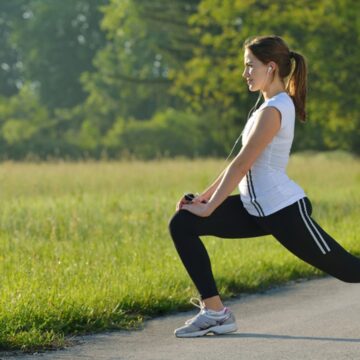
- According to experts, morning exercise is the most beneficial when it comes to calorie burning.
- However, they also agree that night exercises are still helpful.
- Consistency is key to an effective workout routine.
To maximize the benefits of exercise, experts suggest choosing the perfect time of day to do it.
What is the best time to work out?

Making time for exercise can be as challenging as the actual workout. And really, the best time to exercise is when you can. Bianca Beldini, a doctor of physical therapy and a USA Triathlon Certified Coach, believes exercise timing is very subjective, and that figuring out what works for your body might require some trial and error. You also shouldn’t let exercise timing prevent you from working out whenever your schedule permits.
Morning workouts may be the most beneficial

According to registered dietitian Emily Tills, a nutrition coach with a Masters in Applied Exercise Science who works with athletes, a big advantage of a morning workout is the calorie it burns.
Tills explains that when we wake up in the morning, our metabolism and calorie burn increases along with the rise in blood flow to the entire body, warming up the muscles for the day. The boost in metabolism and calorie burn in the morning, along with morning activity, can lead to a more significant calorie burn, explains Tills.
An afternoon or evening workout still burns calories, but since your body will soon rest, it doesn’t benefit much from the extra activity throughout the day the same way a morning workout does, says Tills.
Certified strength and conditioning specialist and director of education at StretchLab, Austin Martinez, says working out in the morning also increases blood flow, which improves a person’s cognitive function, and braces the body for the day ahead.
Don’t take afternoon or nighttime workouts for granted

Although experts suggest that morning is the best time to work out, doing so in the afternoon and nighttime isn’t meaningless. For some people, afternoon or early evening exercise can be better because they aren’t sacrificing sleep to exercise, says Jasmine Marcus, a physical therapist and strength, and conditioning specialist.
According to a Journal of Physiology study, exercising in the afternoon, especially if it’s too close to bedtime, can make sleeping harder. But research that appeared in Experimental Physiology suggests that working out at nighttime might not disrupt sleep that much.
Consistency is key

In essence, the best time to work out is during a time that best suits you, as long as you stick with it. According to Martinez, our bodies are built for routine and habits, so creating a consistent workout routine will produce positive results, says Martinez.
Marcus says to allow enough rest time between workouts if you do exercise at different times each day. He explains that the body needs at least 48 hours of recovery periods between hard workout sessions.
Via The Healthy
